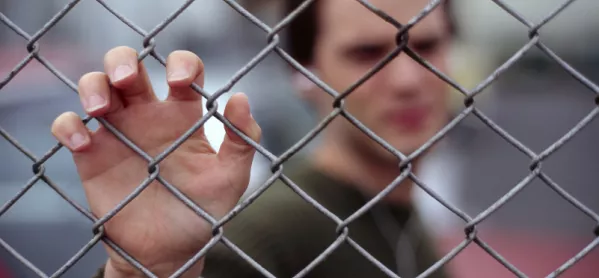Once again this week, I was asked by local media to give a quote on mental health in schools: once again, I was asked: “Is there a crisis?”
I’m always nervous of sounding like Labour prime minister Jim Callaghan who famously didn’t comment, “Crisis? What crisis?” But such emotive vocabulary is unhelpful.
There are significant problems with mental illness among young people, and many schools are struggling to cope.
A BBC report this week trumpeted: “Schools must do more on mental health, say School Reporters”. Half of teenagers with mental wellbeing issues try to cope alone: and a third said that they were insufficiently confident to speak to a teacher.
That makes hard reading: but it’s not all bad news. The BBC’s researchers found that of 1,000 11-16-year-olds questioned, 70 per cent had experienced negative feelings in the past year: nonetheless 86 per cent described themselves as happy overall.
As for finding someone trustworthy to talk to confidentially, while 18 per cent described the help schools offer as poor, 66 per cent reckoned it was good, and half said there was an allocated teacher they could talk to.
Almost three-quarters of teachers (700 were polled) said they would often or occasionally worry about a particular pupil’s wellbeing in their free time. Over a third said they had received no training on how to deal with pupils’ mental health issues, and a quarter said they wouldn’t know what to do: but that suggests that two-thirds to three-quarters feel neither untrained nor helpless.
Panic or kneejerk reactions are counterproductive. We need to keep things in proportion, identify the scale of the problem with more accuracy than hitherto and plan responses.
Back in January, the prime minister announced plans to transform attitudes to mental health, particularly among the young: her plans (sketchy at best at this stage) include better links between schools and health professionals, and the provision of mental health first aid training for every secondary school. It’s progress, though the target of reaching a third of teachers with training in the first year is modest.
A Green Paper, Children and Young People’s Mental Health, is due in the autumn: it’s important that education and health professionals make their voices heard in its formulation, long before the consultation stage. There are plenty of players in the field, and it seems at present that No. 10 is prepared to listen.
Here I must, as ever, declare an interest, in that I head an independent school: but my sector has a great deal to contribute to this work.
Parts of the independent sector are leading the way in devising not only interventions for children suffering from mental ill health but also effective approaches to character education and helping young people to develop resilience.
While we can never entirely eradicate mental illness (because illness of every sort will always be with us), we can equip children and young people to cope better with the slings and arrows of outrageous adolescent fortune, so they can take failure and knock-backs in their stride rather than allowing them to become triggers for depression, anxiety or other illness.
As my friend Dick Moore of the Charlie Waller Trust tirelessly says, it’s about helping them to dance in the rain or, even more vividly, to bend in the hurricane rather than snapping in the gale.
I currently chair HMC’s Wellbeing Working Group, an assortment of member heads guiding the association’s response to this very live issue. Recent HMC conferences have tackled mental health issues head on, even braving and facing down the inevitable media headlines about “Private Schools’ Mental Health Crisis” (that word again!).
We know that solid work, proactivity and the sharing of best practice are helping us to lead the way.
The better resources of the independent sector allow us the time, space and ability to employ our own professionals (such as counsellors), “luxuries” (which shouldn’t be so designated) that the government’s own schools, struggling with swingeing funding cuts, are hard pressed to match.
There isn’t a crisis - yet. But the problem is undoubtedly out there, and is not getting any smaller.
Concerted action is vital and government will have to reach into its pocket if together we are to find solutions.
Dr Bernard Trafford is headteacher of the Royal Grammar School, Newcastle upon Tyne and a former chair of the Headmasters’ and Headmistresses’ Conference. The views expressed here are personal. He tweets at @bernardtrafford
To read more columns, view his back catalogue.
Want to keep up with the latest education news and opinion? Follow TES on Twitter and like TES on Facebook




